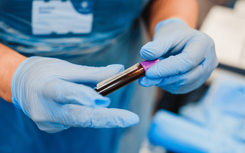
The Benefits of Having a Blood Test
People often assume they only need to have a blood test when they’re sick or worried about their health. The reality is that getting regular blood tests is one of the best ways to be proactive regarding your health. A blood test can provide valuable insights into your overall health status while identifying the early changes that can help prevent illnesses from developing. In some cases, it can even be life-saving.
Blood tests are one of the most common types of medical tests, used for a wide variety of purposes. If you’re unsure about taking a blood test, this post explains the benefits of blood testing and recommendations for how regularly you should get blood work done to stay in control of your health.
What are blood tests for?
Blood tests provide essential insights into how your organs and body systems are functioning.
Your blood is packed with substances like cells, proteins, hormones, nutrients, and enzymes, referred to as blood biomarkers, or biomarkers for short. These biomarkers provide key insights into organ function, heart health, metabolic status, recovery, nutrition, longevity, immune function, and much more.
Why should I take a blood test?
Routine blood tests are a valuable tool for early detection of health issues, monitoring chronic conditions, assessing organ function, and evaluating overall health status. There are many reasons to have a blood test, including:
- To determine your risk status for certain diseases and conditions
- To give a snapshot of your current health, that can act as a benchmark for the future
- To check the success or progress of a treatment
- Early diagnosis of a condition before symptoms or complications develop
- Identify any treatment side effects
- To monitor the status and progression of existing chronic diseases
- Benefits of blood testing
Just as there is a wide variety of blood tests, there are a variety of benefits to be had, they include:
1. To monitor health Blood tests help monitor your health both when you're taking your annual check-up and when you aren’t feeling well. Having your blood screened can help determine any underlying illnesses and get treatment.
2. A quick method for diagnosis Blood tests are relatively cheap and don’t take long to do, and you often get results in just a few days. This means getting a solid diagnosis and treatment options quickly or confirming if there’s nothing wrong in a short time.
3. Can detect a variety of conditions Our blood has many functions, and a lot of different enzymes, chemicals, and hormones pass through it. Because our circulatory system runs through most parts of our body, blood can be used to test for a wide variety of illnesses.
4. Useful in preventing diseases Seeing changes in your blood test results that increase the risks of specific conditions means being able to act on it before it becomes a problem.
5. Important to treat diseases early Confirming a diagnosis through blood work can get you started on a treatment protocol early, rather than waiting for the condition to show symptoms and progress. Blood tests can also confirm if treatment is working. Blood testing can lead to quicker treatment and better outcomes.
6. Monitoring chronic conditions: Blood tests can help monitor chronic health conditions such as diabetes or high blood pressure. Routine blood tests can help monitor the effectiveness of a treatment and identify any changes that may require adjustments to the treatment plan.
7. Tracking changes in health: Changes in blood levels can indicate a variety of health issues, even if you feel perfectly fine. Routine blood tests can track changes in the body over time. It helps identify potential health issues before they become serious.
8. Assessing organ function: Blood tests can help evaluate organ function, such as the liver and kidneys, which are essential for overall health.
9. Evaluating nutritional status: Blood work can also assess nutritional status, such as levels of iron, vitamins, and minerals, which can help identify deficiencies and inform dietary recommendations.
10. Monitor medication side effects: Routine blood tests can monitor for potential side effects of medications and ensure that they are not causing any harm.
11. Screening of cancer: Some blood tests detect cancer markers associated with certain types of cancer, such as CA 125, which can help with early detection and treatment.
12. Identify infections: Blood tests can also detect infections, such as bacterial or viral infections, that may be causing symptoms or contributing to health issues.
13. Assess risk factors: Blood tests can identify risk factors for certain health conditions, such as high cholesterol or elevated blood sugar levels, which can help inform lifestyle changes to reduce the risk of future health problems.
14. Provide peace of mind: Regular blood tests can provide peace of mind that you are fit and healthy, and help alleviate any concerns you have about your health.
How often should I have a blood test?
The frequency of blood tests will depend on many factors, from the specific blood test being done, to your health status and personal risk factors. Your doctor can advise you on specific tests relevant to you.
Blood tests can be taken individually or as part of an overall health check, where many blood tests are done at one time to evaluate overall health and detect potential medical issues. Multiple blood tests carried out at one time are often referred to as ‘blood work’.
Many doctors recommend that you get blood work done once per year during your annual health check. However, the exact frequency of blood tests depends on the type of test, your specific risk factors, and any symptoms you may be experiencing.
Depending on the blood test, specific risk factors may include:
- Age and sex
- Current medications
- Sexual activity
- Previous health conditions or health status
- Family history of disease
- Obesity
- Drinking, smoking, and drug-use habits
- Lifestyle
What happens during a blood test?
A blood test is a routine laboratory test that measures different substances, or biomarkers, circulating in the blood. A blood sample is obtained by a trained. such as a doctor, nurse or phlebotomist. The blood sample is drawn from a vein on the inside of the arm, usually taking just a minute or two, and is nearly painless - just a quick pinch when the needle is inserted.
The blood is collected into a vial (sometimes multiple vials, depending on the number of tests). Immediately after the blood is drawn, the medical professional will apply a plaster to the area, which should remain in place for a few hours. Some people experience light bruising after a blood test, but that usually fades within a few days.
The blood sample is then analysed in a laboratory by a trained pathologist, where it’s examined under a microscope or tested with other chemicals to test for various issues. The blood test results are either sent directly to the patient or to their doctor for interpretation.
For some blood tests, home blood testing kits are also available and allow you to collect drops of blood from a finger prick. These types of tests are sometimes less accurate than having a blood sample taken by a medical professional.
Annual health assessments
If you feel anxious about your health, having an annual health assessment is the best way to alleviate any health fears. Being proactive means that you can identify any issues early before they become a problem. While people often have a tendency to avoid things that make them feel uneasy, your health is something you shouldn’t ignore.
An annual health assessment is the best way to stay in control of your health and enjoy complete peace of mind. At Bluecrest Wellness, we offer a range of health assessments that are quick, easy and affordable. Each of our full body health assessments provides a thorough overview of your current health status and includes access to our 24/7 GP Helpline for a whole year.
Personalised results with no medical jargon - just real insights into your health and actionable steps you can take to live a longer, happier life. Where your health is concerned, knowledge really is power.
How do I arrange a blood test?
Arranging a health assessment or specific blood test with Bluecrest Wellness couldn’t be simpler. Here are the simple steps to taking control of your health with a Bluecrest health assessment:
- Choose the most appropriate health assessment for you. If you are unsure about the best option, speak with one of our team.
- Choose the testing centre and appointment time that is most convenient for you – we have over 400 venues throughout the UK and Ireland, so you never have more than a 20-minute travel time.
- Attend your appointment and undergo your check, usually taking no longer than 30 minutes to complete.
- Track your health assessment tests and results with our online tracking system, and receive a personalised digital Results Report no more than 8 days after your assessment.
- Talk through your results with one of our experienced GPs through our 24/7 GP Helpline, which you have access to for a full year after your health assessment.
BOOK YOUR HEALTH ASSESSMENT NOW
























